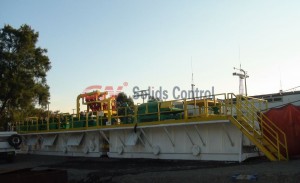Drilling engineering is a subset of petroleum engineering. Drilling engineers design and implement procedures to drill wells as safely and economically as possible.
Exploration and petroleum engineering are the oil and gas industry’s two main sections. Petroleum engineering is a field of engineering related to the production of crude oil or natural gas.
Drilling engineers are in charge of the process of planning and drilling the wells. Their responsibilities include:
- Designing well programs to prevent blowouts
- Designing casing strings and cementing plans, directional drilling plans, drilling fluids programs, and drill string and drill bit programs.
- Specifying equipment, material and ratings and grades to be used in the drilling process.
- Providing technical support and audit during the drilling process.
- Performing cost estimates and analysis.
- Developing contracts with vendors.
Solids Control is one of the most important phases of the drilling process. The primary reason for using mechanical solids control equipment is to remove detrimental drilled solids from the mud system. Mechanical separation of drilled solids is achieved via screen separation(shale shaker, mud cleaner, desander, desilter) or accelerated g-force(decanter centrifuge). Effectively removing unwanted solids from the drilling fluid on the first pass through the solids control equipment is an important factor in maintaining drilling fluid properties and reducing drilling fluid cost. GN solids control specialized solids control in oil & gas drilling, and we only focus on how to separate the unwanted solids effectively and use the minimum cost.
Welcome to contact us for discussion about solids control.
